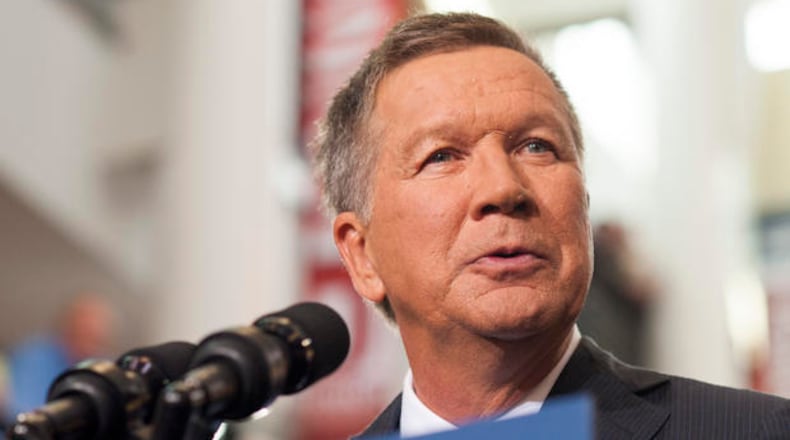Convicted child killer Ronald Phillips is scheduled to be executed Wednesday morning for the 1993 beating, rape and murder of his girlfriend’s 3-year-old daughter.
NATIONAL NEWS: DOJ seeks to waive Harley-Davidson air-pollution punishment
The state has not carried out the death penalty since the execution of Dennis McGuire in January 2014 when Ohio Department of Rehabilitation and Correction used a previously untested combination of lethal drugs. Witnesses said McGuire gasped and choked as the execution took 26 minutes.
NATIONAL NEWS: Groups to train volunteers to record police interactions
Death penalty opponents, including 200 clergy, 17 former prison workers, and five men exonerated after serving time on Ohio’s Death Row, are pressing Kasich to not resume executions. They issued an open letter to the governor and held a Statehouse press conference this week.
Retired 2nd District Court of Appeals Judge James Brogan, who chaired an Ohio Supreme Court task force on the death penalty, said it’s troubling that executions are slated to resume when most of the task force’s 56 recommendations to the Legislature lay idle.
Death Row inmates filed legal challenges in federal court to Ohio’s lethal injection process. Phillips and two other inmates have asked the U.S. Supreme Court for a delay while their challenge to Ohio’s procedure continues.
Lawyers for the death row inmates argue the procedure’s first drug, the sedative midazolam, creates an unconstitutional risk of pain by not rendering prisoners deeply unconscious before two other drugs kick in.
Midazolam has been used in some executions that were problematic, including in Ohio, Arkansas and Arizona. The request for the delay was made to Justice Elena Kagan, who handles such appeals for Ohio.
There are 139 inmates on Ohio Death Row. Four are scheduled to be executed in 2017, 10 in 2018, nine in 2019 and four in 2020, according to the DRC website.
Information from the Associated Press is included in this report.
About the Author

